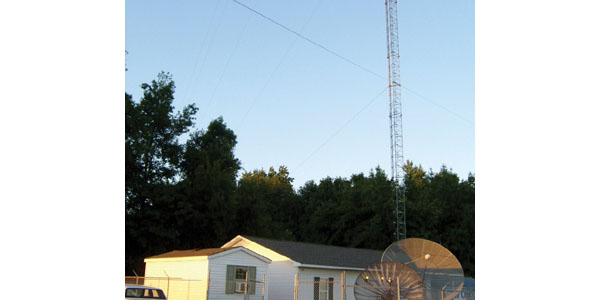T-Mobile to Foot Repack Cost for Displaced Public LPTVs

WASHINGTON— T-Mobile has committed to covering the moving costs for local public TV low-power facilities required to relocate to new channels in the post-incentive auction repack, according to PBS and Americas Public TV Stations.
The pair said coverage for as many as “38 million Americans” would potentially be affected by the displaced operations, though they did not provide specifics, nor is it clear the T-Mobile support comprises all affected public low-power TV operations, or just those displaced by T-Mobile’s desire to light up the spectrum it won at auction as soon as possible.
(TV Technology has queries pending and will update as information is made available, but one source indicated that the agreement covers all affected public low-power TV operations. Update, June 30, 1:23 p.m. ET: This was confirmed by Aparna Kumar, PBS senior director of corporate communications, who said, “The public television initiative with T-Mobile will provide financial support for all low-power television operations across the country currently carrying public television programming that are displaced as a result of the incentive auction or repacking process, not just those areas where T-Mobile is lighting up spectrum.”)
Update, June 29, 3:41 p.m. ET: According to an APTS spokeswoman, “There are 384 noncommercial translators (Update, 8:03 p.m. ET: both public TV and commercial) in 33 states serving nearly 38 million people over-the-air being repacked and covered under the T-Mobile grant. Of the total, roughly 39 translators are in the ‘commencement of operations’ phase beginning late fall.”
T-Mobile was the top spender in the incentive auction, taking home nearly $8 billion in airwaves.
The federal legislation establishing the spectrum incentive auction excluded low-power broadcast facilities and translators form the $1.75 billion fund to reimburse moving costs for displaced stations. Translators essential for extending the reach of TV broadcast signals deep into sparsely populated regions, namely, rural America. As a result, PBS and APTS said, as many as 38 million Americans in rural communities were at risk of losing free over-the-air access to public television programming and services.
APTS and PBS said the project also means more better broadband in underserved areas as T-Mobile lights up its extended network.
Statements abounded:
PBS President and CEO Paula Kerger: “Public broadcasting has been one of America’s greatest and most enduring public-private partnership. We are thrilled that T-Mobile sees the value that public broadcasting brings to the American people and is helping to ensure that everyone—regardless of income or zip code—continues to have access to PBS, including vital emergency alerts and programs that help prepare children for success in school.”
APTS President and CEO Patrick Butler: “As the post-auction repacking process moves forward, local public television stations are committed to ensuring that all Americans continue to have free over-the-air access to the local content and services on which our viewers and their communities depend. America’s Public Television Stations are very pleased that this initiative with T-Mobile will help address one of the most significant repacking challenges that local public television stations face by providing needed funding to relocate translator facilities that enable us to provide essential services in education, public safety and civic leadership to the most rural and remote parts of the country.”
Neville Ray, chief technology officer of T-Mobile: “We’re proud to collaborate with broadcasters across the country as they transition to other channels, and doubly proud to support local public television’s public service mission and help ensure millions of kids in rural America continue to have access to public television’s high-quality, educational programming. Moves like this will help us expand our network into these underserved areas and give consumers a new level of wireless coverage and choice.”
FCC Chairman Ajit Pai: “I commend PBS, APTS, and T-Mobile for developing a creative solution to assist millions of TV viewers during the post-incentive auction transition. The financial assistance provided by T-Mobile will help the many Americans who rely on public television, especially in rural areas. It will also help expand wireless connectivity in rural America. Today’s announcement is precisely the kind of cross-industry cooperation we need to ensure a smooth transition for broadcasters, wireless providers, and American consumers.”
National Association of Broadcasters Executive Vice President of Communications Dennis Wharton: “We are gratified to see T-Mobile embrace the principle that viewers should not lose service during the repack. We will continue to work to ensure that viewers are protected during the post-auction transition.
To follow our online coverage, visit our repack silo, www.tvtechnology.com/repack.
The professional video industry's #1 source for news, trends and product and tech information. Sign up below.
